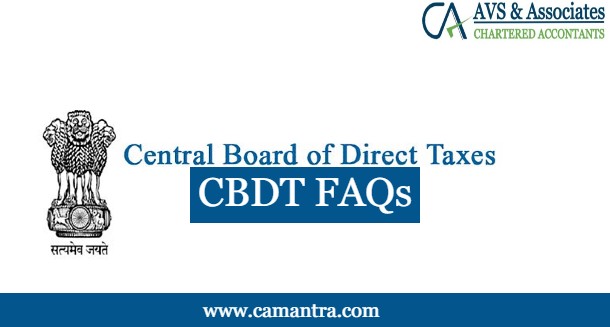In a significant move to enhance transparency and streamline compliance, the Central Board of Direct Taxes (CBDT) has issued a detailed set of Frequently Asked Questions (FAQs) on the compounding of offences under the Income Tax Act, 1961. The document is intended to address common queries from taxpayers and legal professionals regarding the procedure, eligibility, and conditions for compounding tax-related offences.
This development is part of the government’s broader agenda to promote voluntary compliance, reduce litigation, and clarify the tax laws for better understanding among stakeholders.
What is Compounding of Offences?
Compounding of offences is a mechanism under the Income Tax Act that allows an individual who has committed an offence to avoid prosecution by paying a prescribed compounding fee. This is done at the discretion of the competent authority and is applicable to both technical and serious offences, subject to certain conditions.
The CBDT’s FAQs aim to demystify this process and provide clarity on when and how offences can be compounded.
Key Highlights from the FAQs
1. Who Can Apply for Compounding?
Any taxpayer or entity who has committed an offence under the Income Tax Act and has received a show cause notice or is facing prosecution can apply for compounding. The applicant must voluntarily admit the offence and agree to pay the compounding charges.
2. Types of Offences Eligible for Compounding
The FAQs provide a clear classification of offences into compoundable and non-compoundable. Common offences that can be compounded include:
- Failure to file ITR (Section 276CC)
- Failure to deposit TDS (Section 276B)
- Willful evasion of tax (Section 276C)
However, serious offences involving corruption, terrorism financing, or those with repeated defaults may not be eligible.
3. Procedure for Applying
The application for compounding should be submitted to the Principal Chief Commissioner or the Chief Commissioner of Income Tax. The form should be submitted with supporting documents and a demand draft for the prescribed fees.
The process includes:
- Submission of application
- Verification by authorities
- Payment of compounding charges
- Closure of prosecution, if approved
4. Time Limits and Processing
Applicants must apply before the court takes cognizance of the offence, although exceptions may apply. The FAQs also emphasize timely disposal of applications, with most cases expected to be processed within six months from the date of receipt.
5. Calculation of Compounding Fees
The compounding charges vary based on the type and severity of the offence committed. The FAQs include examples and guidelines to calculate the fees, bringing uniformity and predictability to the process.
Why This Matters to Taxpayers
The issuance of these FAQs is a welcome move for several reasons:
- Transparency: Taxpayers now have access to a structured, uniform approach.
- Legal Clarity: Reduces ambiguity about which offences are eligible.
- Compliance Encouragement: Encourages voluntary admission of default by offering a clear remedy.
- Reduction in Litigation: Offers a non-adversarial alternative to court proceedings.
Conclusion
The CBDT’s FAQs on compounding of offences under the Income Tax Act provide a much-needed guide for taxpayers and professionals navigating the legal complexities of tax defaults. With this initiative, the tax administration reinforces its commitment to a fair, efficient, and taxpayer-friendly environment.
Taxpayers are encouraged to consult these FAQs and seek professional advice when dealing with potential prosecutions under the Income Tax Act. Timely action and transparency can not only reduce legal burdens but also help maintain a clean compliance record.

